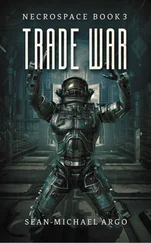Heydrich scanned it quickly, and then waited, his eyes on the paper. Schellenberg knew he was thinking, not reading.
He tossed it to one side, and leaned back in his chair. ‘So?’ he said.
Heydrich was asking how much Schellenberg knew. This was Schellenberg’s chance to tell him he knew very little.
‘This is the second time I have come across de Lancey’s name,’ he said. ‘It first came up during the interrogation of Major Stevens a couple of days ago. Stevens claimed that his men in Holland had followed de Lancey, and saw him meet Hertenberg in Leiden. That was probably the seventh of November. I retrieved de Lancey’s file and discovered that he and Hertenberg were old friends from Oxford University. In fact they had seen a lot of each other last year, when de Lancey visited Berlin.’
‘And what did you do with this knowledge?’
‘Much of the file was put together by Kriminalrat Schalke, whom you may remember was murdered in the Tiergarten last year. Having read the file, it seemed to me prudent just to watch Hertenberg and wait to see what he did.’
Heydrich smiled. ‘You have good judgement, Walter.’
‘I was tempted to continue just to watch and wait, but I thought it was better to inform you.’
‘Another good decision. Let me see the file.’
Schellenberg handed it over and Heydrich flipped through it. The Gestapo chief grunted and a small smile crossed his lips. Schellenberg guessed that he was pleased to observe the obvious gaps. Heydrich stood up, walked over to the window, and stared across the Wilhelmstrasse to the new Reich Chancellery. Schellenberg waited.
‘Klaus Schalke was a good officer. I’m sorry he died, and I am quite sure that de Lancey had something to do with it. I met him once, next door.’ Heydrich meant the Gestapo building around the corner in Prinz-Albrecht-Strasse. There had been nothing in the file about Heydrich interrogating de Lancey, another deliberate omission no doubt. ‘I didn’t like him. And I have severe doubts about his friend Lieutenant Hertenberg.’
Schellenberg remained silent.
‘Get Naujocks to put one of his men on to it. When de Lancey comes to Holland I want him dealt with. And tell Naujocks that it would be most unfortunate if an accident were to befall Hertenberg at the same time.’
Schellenberg knew that when Heydrich used the word ‘unfortunate’ he meant the opposite. He had no objection to de Lancey’s death, but he thought Heydrich was going too far with Hertenberg.
‘But Hertenberg is an officer of the Abwehr! Shouldn’t we check with Canaris to see whether he knows about the meeting?’
‘I am sure that Canaris is being hoodwinked by these two as much as we are. And, as I said, it would be most regrettable if Lieutenant Hertenberg were hurt in the operation. Do I make myself clear?’
‘Crystal clear, Herr Gruppenführer! Heil Hitler! ’ Schellenberg clicked his heels and saluted. He understood his orders.
Unter den Linden, Berlin
‘It’s a shame you couldn’t get away, Theo.’
‘I know, Dieter,’ Theo replied. ‘I haven’t been home since May.’ Once again he had had to drop everything and fly to Holland, this time to meet Conrad. He couldn’t explain this to Dieter, of course. His aeroplane was leaving Tempelhof that afternoon.
Theo and his younger brother were strolling along Unter den Linden, both in their Wehrmacht uniforms. Although Dieter was only five years Theo’s junior, he looked a lot younger than twenty-five. He was an enthusiastic soldier, in fact he was enthusiastic about everything, with a wide grin full of innocent charm, and unruly red hair which even a military haircut could not completely tame.
They had agreed to meet at Café Kranzler on the corner of Friedrichstrasse, but it was too crowded and Dieter said he needed the exercise between two long train journeys: one from Koblenz to Berlin, another to Stettin, and then on to the little town in Pomerania near which their family owned a small manor house and estate. The war was playing havoc with Germany’s rail system; the trains never ran on time, with delays of many hours, and there had been two major crashes with hundreds dead. During this Sitzkrieg it was safer sitting on the western front than taking a train home.
It was cold, but at least it wasn’t raining. Unter den Linden was busy, with sleek modern vehicles fluttering swastikas and men dressed in the smart uniforms of the modern German Reich passing purposefully in front of the grand buildings and statues of the old, glorious Prussia. The biggest statue of all, Frederick the Great, looked down approvingly on it all from his horse further down the avenue.
‘Father said we are going hunting tomorrow. The Bismarcks will be there. And the Kleists.’
‘Give my regards to Uncle Ewald,’ said Theo. ‘And the others.’
‘So you and Uncle Ewald haven’t been discussing things recently?’
Theo knew Dieter was referring to the various plans to remove Hitler. While Dieter had never been involved directly in any of the plotting, it was impossible to be a member of one of those close-knit Prussian families and not know about them. Uncle Ewald — Ewald von Kleist — had been right at the centre of those discussions, and had visited Britain in the summer of 1938 with the help of Theo and Conrad to meet senior British politicians.
‘It’s been called off,’ said Theo. ‘I don’t think Brauchitsch and Halder ever really had the guts for it.’
‘I’m glad to hear that,’ said Dieter.
‘Are you?’ Theo asked sharply.
Dieter walked in silence for a bit. ‘Yes, I am. I agree with all of you that Hitler is a madman and the country would be better off without him. He will ruin Germany. But I am a soldier and we are at war. I want us to win, Theo. This isn’t the time for a putsch. This is the time for fighting the enemy.’
In some ways Theo admired his brother’s loyalty and straightforward patriotism. Dieter was no Nazi; he was a decent man who believed in his country. But it had long been Theo’s role in life to explain things to his little brother.
‘Look at the linden trees,’ said Theo.
‘What lindens?’ said Dieter.
The tall lindens that gave the street its name had been chopped down in 1934 to facilitate the construction of the S-Bahn. Saplings had replaced them, but it had changed the whole character of the boulevard.
‘Precisely. You know the song: “As long as the old trees stay on Unter den Linden, nothing can defeat us. Berlin will stay Berlin.” The trees are gone, Dieter.’
‘And that’s just an old song,’ said Dieter. ‘I saw what we did in Poland. I know we can do it again in France.’
‘What was Poland like?’
‘We did well,’ said Dieter. ‘Mostly the Poles retreated or surrendered, but we were involved in one action. There was a counter-attack near the River Bzura, and we held off a Polish cavalry brigade for two days. They fought bravely and so did we.’
Theo was curious about what real battle was like. In his role in the Abwehr he had faced danger, but never a visible enemy. Conrad had, and now so had Dieter.
‘Did you take many casualties?’ he asked.
‘Our company lost fifteen men killed and twenty-three wounded.’
‘Were you afraid?’
Dieter glanced at his older brother. It wasn’t the sort of question one soldier asked another, at least not in the Wehrmacht. ‘Yes. I was. But I was also excited. And when we realized on the third day the Polish brigade had given up their attack, I felt so proud. Our unit worked well together: all that training paid off. And, yes, I felt that I was doing what I was born to do, what all those Hertenbergs from Father back through history have done. We fight wars. It’s dangerous, sometimes we get killed, but we usually win. I often think you don’t understand that, Theo.’
Читать дальше












